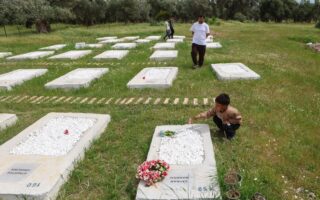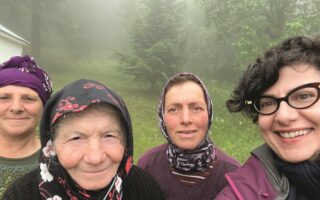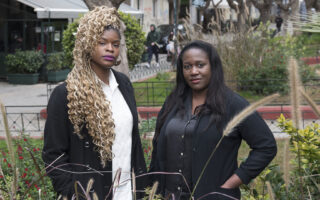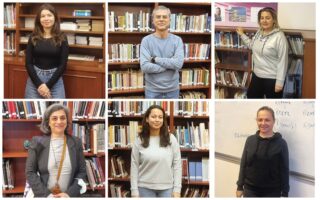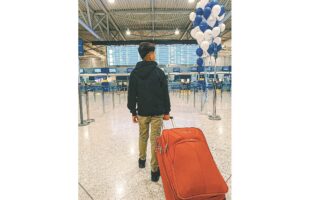Studying Islam outside of stereotypes
The president of the Theology Department of the Aristotle University and two graduates of the Muslim Studies program speak to Kathimerini
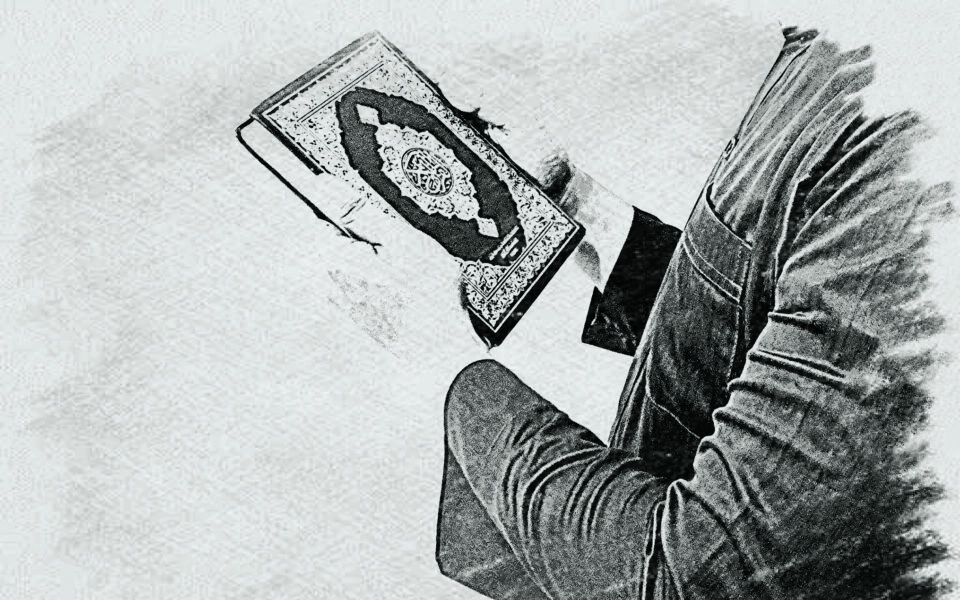
In December 2016, the first graduates of the newly established program Introduction to Muslim Studies, at the Aristotle University of Thessaloniki, sat down to study Islam, an emerging world which, in one way or another (positive or negative), we find before us and must learn to “read,” away from stereotypes and prejudices. The introduction of the program, for which the decision had been taken since 2014, did not start well. A section of the Greek Orthodox Church, the university community and the conservative political class reacted vociferously, alleging there was a danger of turning the university into a “breeding ground for Islamic extremism” and mass-producing fanatical imams. Some academics and non-academics even appealed to the Council of State, Greece’s highest administrative court – and lost.
Kathimerini had joined the first class of new students in 2017, curious to see who the young people who would want to study the Quran were. “Do I look like a terrorist to you?” Yiannis Palamidis had asked us, laughing. The same was true for Athanasia Avramoglou, a cheerful young woman sitting next to him.
Eight years later, Kathimerini sought out the two former students, now graduates of the school. Yiannis has not become an imam nor does Athanasia wear the hijab. Palamidis has already completed a master’s degree and is now serving his military service and plans to join the diplomatic corps. He told us he has already done a six-month internship at a Greek embassy abroad. Avramoglou, after completing her master’s degree, is teaching Arabic, which she learned at the school, and wants to immerse herself in Arabic literature. Both say they are happy with the school they chose. “My horizons opened, I stopped seeing Islam narrowly and fearfully,” says Athanasia, as did Yiannis, who believes that he acquired important resources for his professional path.
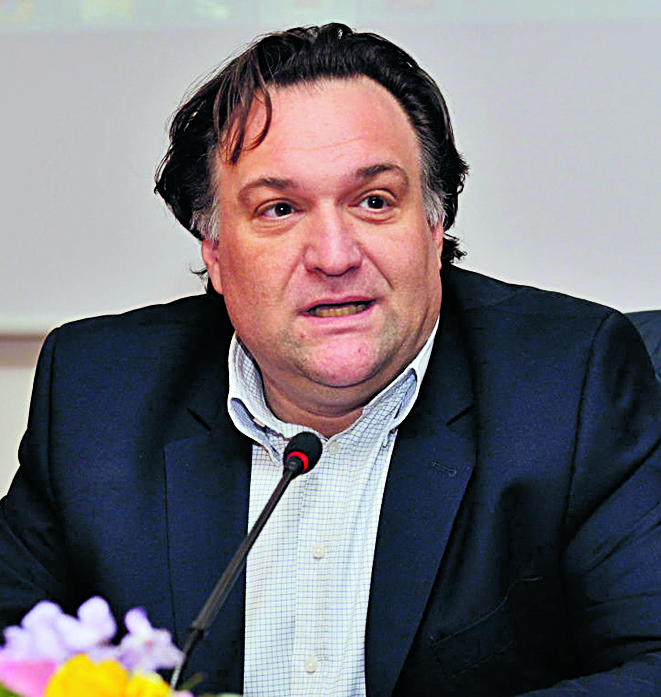
Now, the program itself is standing firmly on its feet, occupying its own place on the university map.
“It is true that we traveled a difficult road, as is the case with every beginning, but these things belong to the past,” says Nikos Maghioros, professor of canon and ecclesiastical law and head of the Department of Theology at Aristotle University. “Similar programs have been operating in many European public and ecclesiastical universities for years.”
The undergraduate Muslim Studies program of the Theology Department is the first and so far the only four-year program operating in Greece. It launched in the academic year 2016-2017 and to date around 60 people have graduated, he tells Kathimerini.
“During its planning, we took into account both the needs of modern Greek society for communication, mutual respect and conciliation, as well as the right of Greek citizens, Muslim and non-Muslim, to specialize in the study of Islam. Our students come not only from the Muslim minority of Thrace, but from all over Greece. In addition to those admitted through the nationwide exams, several were admitted after qualifying examinations as graduates of higher schools because of personal interest.”
The labor market
And what can graduates expect in terms of their employment? “They can teach Islam in the public schools of Thrace or be appointed religious ministers in the mosques of the region,” Maghioros says.
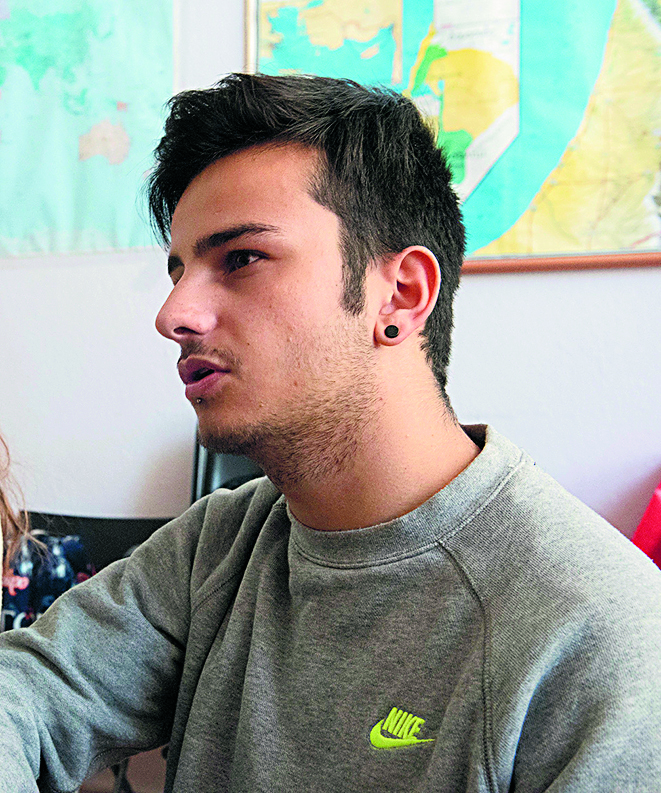
“Furthermore, they have the necessary scientific training to continue their studies at the postgraduate level, not only around the study of Islam, but also more generally around religion and its relationship with society and politics. Our graduates are qualified to work as managers of religious, cultural and social organizations, in agencies dealing with immigration, diplomacy etc. This is very important because we often limit a humanities degree program to teaching in school. In recent decades, the humanities have also entered the private sector dynamically, because the profile of a graduate from a serious curriculum – theology, religious studies, history, philosophy – can strengthen the two-way communication between the market and society. For example, a company that operates in the Middle East needs executives who know the language, the culture, the religious peculiarities of the place,” he explains.
Scientific discourse
Maghioros notes that the program promotes scientific discourse that transcends divisions and extremism. “This is important because nowadays the negative side of the religion is more visible, which is linked to fundamentalism, radicalization and the violence it causes. The undergraduate program in Muslim Studies provides training in fields of study that include the various expressions of Islam, the study of related languages (with an emphasis on Arabic and Persian), Quranic studies and Muslim traditions, the religious and political status of Islam in space and time, its legal systems, its relationship with European legal culture and modern considerations of human rights and religious freedom, the centuries-old relations of Islam with Eastern Christianity, inter-religious and inter-cultural dialogue,” he explains.
Support
We point out to him that there is political instrumentalization of religion, and Maghioros fully agrees.
“Yes, nowadays it is obvious. It also existed in the past, of course. Since 2021, a postgraduate study program titled ‘Religion, Geopolitics and International Security’ is being taught at the Theology Department of the Aristotle University,” he says. “Its subject is the interdisciplinary study and research of the multifaceted relationship between religion and politics and the role it can play in maintaining international security and peace.”
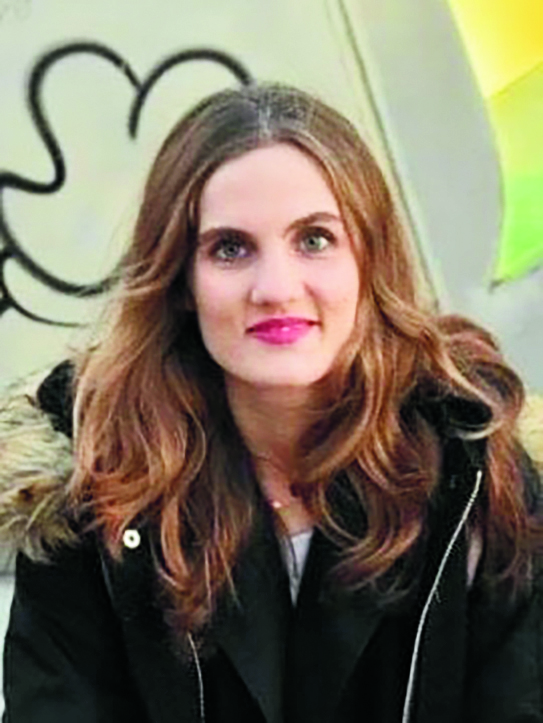
The Muslim minority of Thrace was very positive about the project, Maghioros says, adding that there are students from the minority but also that there were different opinions from a small part of it. The attitude of the Greek Church was also positive, he says, “with some exceptions, which I think were isolated.”
“Everyone has the right to a different opinion, but must express it with arguments and in a respectful way and not for reasons of sensationalism or misinformation. The metropolitans of Thrace, supported [the program]. They supported the effort because they understand that having educated religious practitioners is very important, not only for each religious community, but also for the whole of society. We live in a multi-religious and multicultural society. Knowledge about religion is essential for social cohesion and peace.”
Coexistence
Every Friday, Mohammed, an Egyptian student at the university, rushes to the building of the Theological School with his prayer rug to perform his religious duties. There, he will meet other Muslim students, including some who, after completing their studies, remained in Thessaloniki and now have their own families. They will listen to the verses from the Quran by the imam and pray. For some years now, the Theological School has created a place of worship for Muslims, responding to a relevant request from their community.
On another floor of the school, there is an Orthodox Christian church, the Holy Trinity, which is used by students who want to practice in liturgy and every Thursday a service is held, as well as memorial services or other religious ceremonies. Students, professors and employees at the university attend church.
On the eve of the one-year anniversary of the tragic train accident in Tempe, a memorial service was held there for the 13 Aristotle students who were killed, as well as all the other passengers.
